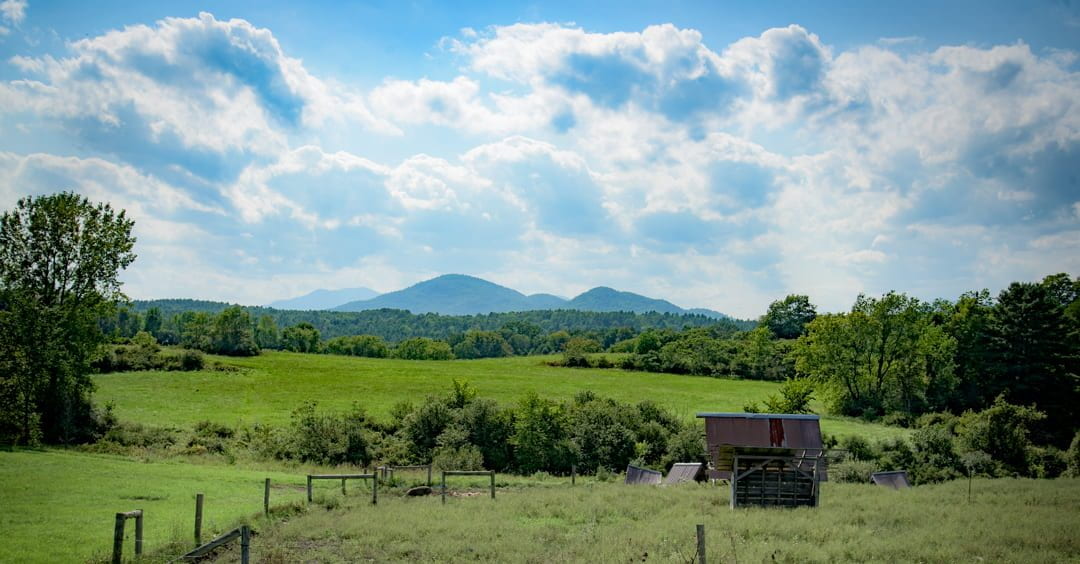Last month, Cornell Cooperative Extension of St. Lawrence County organized a full day trip for local farmers to meet and learn from Essex County food producers. In addition to a chartered bus ride, there were two tracks for participants to choose from, each with two farm stops. Both the produce track and the livestock track featured profitable and progressive Adirondack farmers who have successful value-added enterprises. At the close of the day, visitors and hosts came together on Lake Champlain for a local food BBQ which offered the chance to network with other producers from across northern New York.
Here are the farms that each participant could see and learn from.
- Mace Chasm Farm- Courtney Grimes-Sutton and Asa Thomas-Train graze cattle, sheep, pigs, and poultry in Keeseville. Unique parts of this business include having an on-farm butcher shop where they prepare smoked meats and a wide range of sausages. Though in a remote location, they have a thriving on-farm store, and sell their meats directly to customers at farmers’ markets.
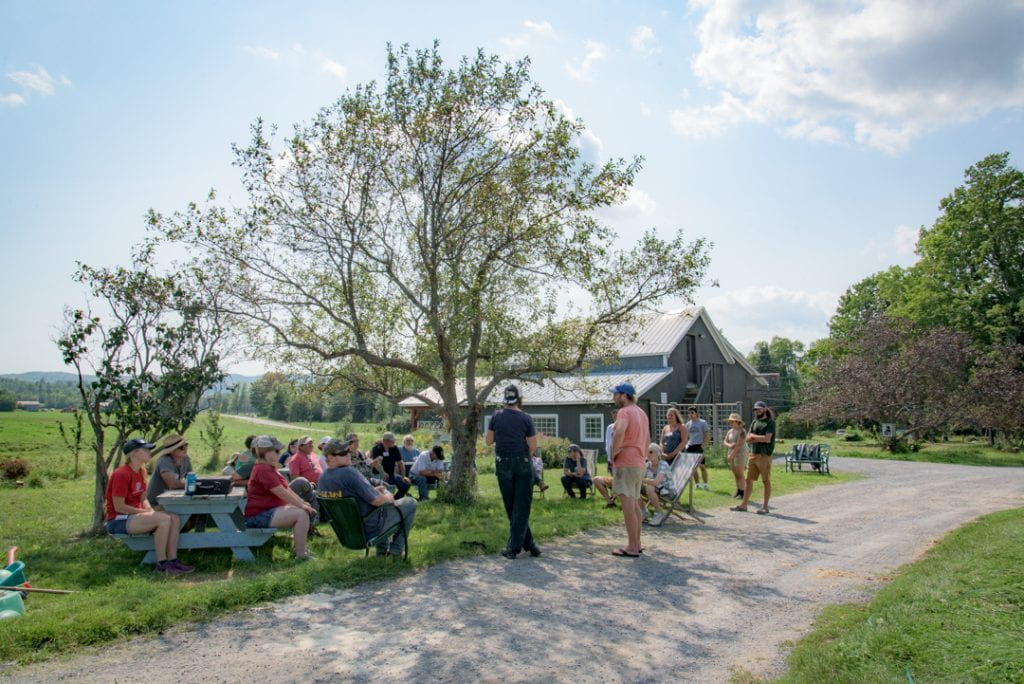
2. North Country Creamery- Ashlee Kleinhammer and Steve Googin run this 100% grass-fed, Non-GMO, & Animal Welfare Approved dairy in Keeseville, NY. They produce a variety of cheeses including Camembert, Havarti and feta, along with cream-line yogurt and have a permit to sell raw milk. In addition to the dairy operations, they operate Clover Mead Farmstore.
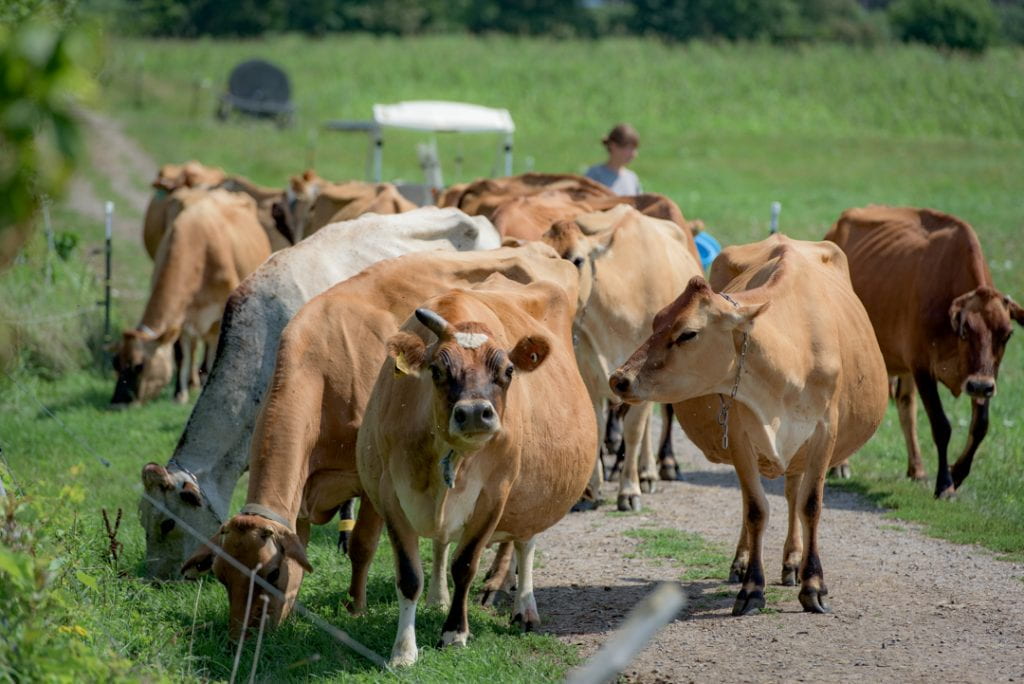
3. Wild Work Farm- Lissa Goldstein started in 2018 growing vegetables and fruit in the High Peaks region of the Adirondacks. Her farm produces high-quality products for sale at farmers’ markets, through a market share program, and to restaurants and wholesale accounts. Wild Work has their gaze set towards social, environmental and economic sustainability, and long-term resiliency in her business.
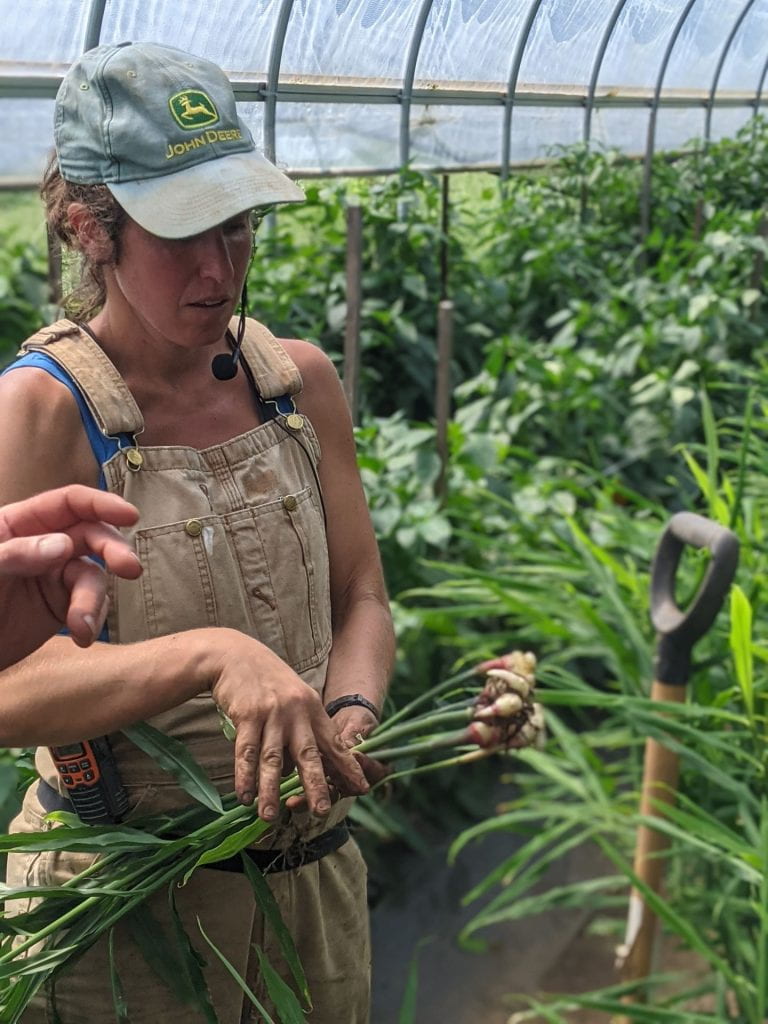
4. Juniper Hill Farm- “Don’t let California feed New York,” is the motto of Adam Hainer, owner of this farm established in 2007. From their first 3 acres, they’ve expanded to over 100 acres of certified organic produce. With 14 greenhouses, they strive to bring to market an earlier and higher quality variety of products.
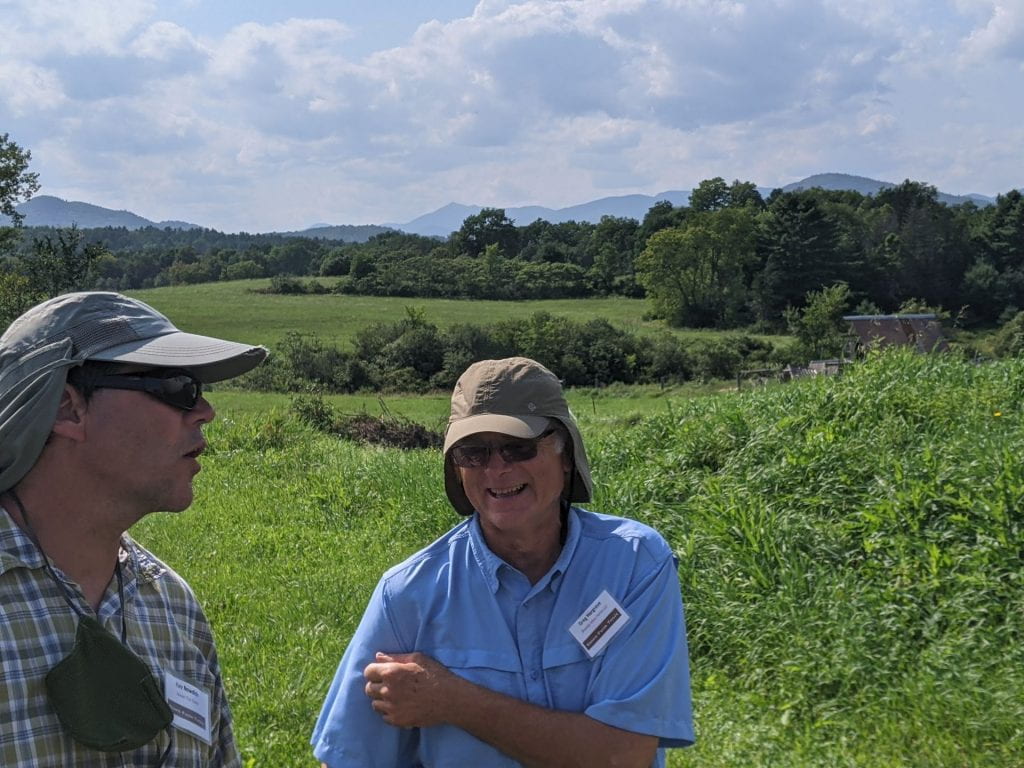
From building a homemade germination chamber for seeds as seen at Juniper Hill to the design of the pastured mobile coops at Mace Chasm, multiple farmers saw practices firsthand during the tours that they will try on their own farms. Too often farmers end up isolated in their own work environments at home, so the opportunity to be in this stimulating environment alongside many capable peers is valuable.
Overall, the day was an incredible success. The farm hosts were open and transparent with their fellow farmers, offering factual information about how their farm operates from pricing to labor to packaging. Tour participants were highly engaged in the stops, as illustrated by one producer commenting that, “It was a really great experience that greatly contributed to my confidence and inspiration going forward with my own plans. Honestly, I would jump at the chance to do it or something similar again.”
In total, 65 farmers, farm employees and technical service providers took part in this event. For the height of the growing season, this turnout is remarkable. May we all have access to both knowledge and inspiration when we need it.

The icing on the cake was congregating at the close of the day for good food and conversation.

In closing thoughts, one farmer mentioned, “I was already familiar with most of the ideas I saw on the tour from my own research, but it was extremely useful to be able to see some of those ideas in practice and to be able to ask questions about the realities of putting those concepts into practice. All the reading in the world doesn’t amount to being able to see it in person.”
